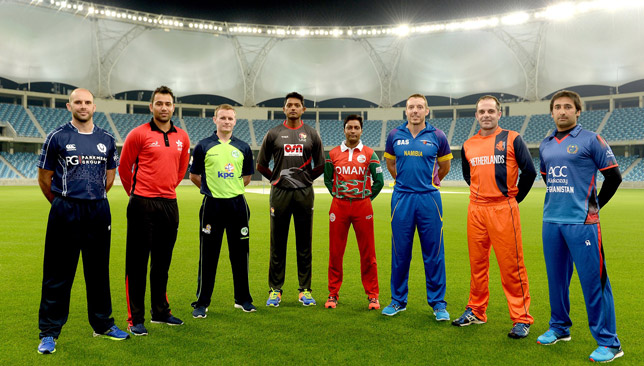
The opening of the Desert T20 in Abu Dhabi on Saturday marked a significant step in the right direction for Associate Nations cricket.
With the World Cup set to be reduced to just ten teams and the nations outside of full-member status with the ICC almost treated as a side note at the World T20 event, they finally have a competitive tournament they can call their own.
The World Cricket League Championship and Intercontinental Cup are all well and good but with them played over such long cycles, the number of games Associates play are minimal at best.
And that is the key issue being addressed by the inaugural Desert T20.
Added financial support and the impending Test status afforded to both Ireland and Afghanistan has seen those two at the top of Associate cricket play far more meaningful cricket in 2016, a trend that will continue this year.
But for those sitting slightly below in the pecking order, finally, the likes of UAE, Netherlands, Hong Kong and Namibia have meaningful cricket to look forward to.
At the World T20 tournament in India last year, the common theme of the qualifiers was that when the tournament ended in April, the teams’ fixture lists were barren.
How were these sides meant to grow without regular fixtures?
It saw Scotland captain Preston Mommsem turn his back on the game, retiring at just 29 years of age, and he wasn’t the only player who favoured more stable careers outside of the sport or cricket away from the Associates with so few matches on offer.
Jamie Atkinson of Hong Kong chose teaching over representing his country, while team-mate Mark Chapman and Namibia’s Cristi Viljoen favoured first-class opportunities in New Zealand over representing their country.
That is a worrying trend but one that, hopefully, the Desert T20 can begin to buck.
This is genuine competitive cricket on their terms, the brainchild of Will Kitchen at the ICC Academy and ECB as well as the ICC’s development heads.
That the biggest teams under the Associate bracket jumped at the chance to play in the competition tells the story.
Yes, Papua New Guinea turned down the invite but that only helped the cause of Namibia, a team without ODI status and in even greater need of such fixtures.
Finally, #DesertT20 2017 hosts @EmiratesCricket & their intent ahead of their Sunday opener 19:00 @AbuDhabiCricket @ICCAcademy @ICC pic.twitter.com/Nb4SrwoDbS
— Desert T20 Cricket (@Desert_T20) January 13, 2017
In that lies the true potential of this tournament, or even a series of them, with expansion and even greater inclusion both what the Associate Nations desire from above and have the chance to implement from within and below.
The greatest disappointment is that the show will go on without televised coverage, the ICC not sanctioning live streaming or broadcasting for a non-commercial competition.
That is frustrating for a group of nations each in need of further exposure in a bid for greater interest in the game in their respective countries but in terms of operating costs it adds a whole host of problems, especially for a tournament beginning just 14 days after it was officially announced.
The ICC are likely to gauge this first edition’s value and potential on a number of different levels when the debriefing begins post-tournament and one of those up for discussion will be its commercial viability.
If they can secure sponsorship, strike broadcast deals and pick up where Cricket Ireland has been so successful in implementing live streaming across digital platforms then the sky is the limit for the Desert T20.
Hopefully, all of this can spark real change moving forward in bringing these teams in from the cold.